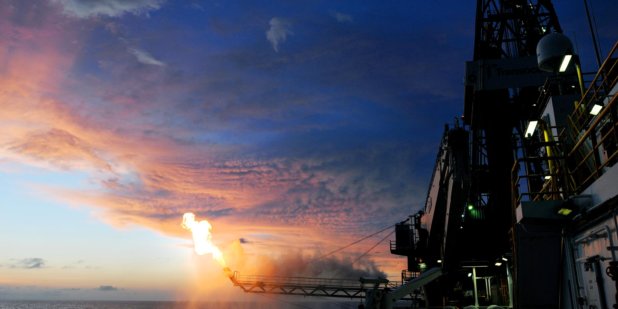- About
- Topics
- Picks
- Audio
- Story
- In-Depth
- Opinion
- News
- Donate
-
Signup for our newsletterOur Editors' Best Picks.Send
Read, Debate: Engage.


Yes, here and there Shell had no other choice but to admit it's misdoings in court. For example, it did so in 2015 in front of a Nigerian court hearing in order to avoid a likely indictment in the U.K.; Shell finally agreed to pay compensations to the community of the town of Bodo in the Nigerian Ogoni-Land, which was utterly devastated by two large oil-spills in 2008 and 2009.
After Shell had first offered £4,000 in 2011 – yes, you have read it correctly, this is not a typo, a meagre 4,000 pounds – it moved on to £18 million two years later in 2013, facing a claim of £300 million by the plaintiff and finally settled the case for £55 million. £20 million was paid to the community, while the remaining £35 million was distributed among 15,600 fishermen and farmers, divided by the figures it came to 600,000 Naira each, which equals £2,100 per person. In this content it is worth mentioning that 18,000 Naira, equaling to £37, is the minimum wage in Nigeria, and that 70 percent of the population lives under the poverty line.
Although Shell’s compensation only amounted to hardly 20 percent of the prosecuting party’s demands, the payments were welcomed and celebrated by the recipient population as a great relief to their sorrows, which stands as a worrying symbol to the ease with which such a corporation could elevate the people in the Delta from their misery. Shell sustained some other relatively small defeats in Nigerian courts, and among others, in 2009 it had to carry out a reparation of £26 million for an oil-spill it has caused from as long ago as 1970. The corporation also had to settle fine to the family of environmental activist and writer Ken Saro-Wiwa when it admitted that its employees were complicit to the judicial murder of the legendary human-rights advocate and Ogoni leader in 1995, the same year that Ken Saro-Wiwa received the nobel prize for his outstanding contribution.
Coming back to the case of the Bodo community. After the London law firm Leigh & Day succeeded in bringing Shell to justice for its offences in the U.K., the firm took a blow in the beginning of 2017 when the High Court rejected the claims made by the families of about 2,000 fishermen in the Bille kingdom alongside about 40,000 people in the Ogale community in Ogoniland. Their leader, King Okpabi, commented as follows, “Our community is disappointed but not discouraged by this judgment and we are confident that, as in the Netherlands, the court of appeal will see things differently. Royal Dutch Shell makes billions of dollars of profit each year from Nigerian oil, but our communities which host its infrastructure have been left environmentally devastated.” Joe Westby, campaigner on business and human rights at Amnesty International said, “This ruling could mean that the communities will never receive meaningful compensation, and that the oil spills will not be properly cleaned up.” His colleague Sarah Shoraka of campaign group Platform called the ruling “a true outrage.” Furthermore, Chief Temebo, a spokesman for the Council of Chiefs of the Bille kingdom pointed at the problems standing in the way of reaching a point of justice in Nigeria, saying that “If the claim does not continue in the English courts, we have no hope that the environment will ever be cleaned up and the fish will ever return to our waters. Shell will do nothing unless they are ordered to by the English courts.”
Shell has been targeted on a large scale, and not only for its misdeeds in the Niger Delta. A study by Amnesty International has reviewed Shell’s role in the murder of Ken Saro-Wiwa as well as its role in assisting the atrocities and mass-killings against Ogoni villages at the same time and aims to reopen this case in the U.K.. Following the path of other prosecutors, who hold big energy companies liable for their contribution to the damages of climate change, the Dutch environmental organization Milieudefensie, is suing Shell for contributing to approximately 2 percent to global warming and for having been informed about the consequences of fossil energies to our world's climate for more than 20 years; the intention is to call Shell to a halt of any further exploitation of fossil energy.
Last but not least, Global Witness, some partner organizations and the Nigerian anti-corruption campaigner Dotun Oloko unveiled the scandalous and astronomic amount of a $1.1 billion bribe to secure the rights of Shell and the Italian oil-company Eni to explore a rich oil-field, which started to roll one of the biggest bribery cases in the history against them before a court in Milan, currently underway.
Needless to say how well this money could have been used in order to counteract the languishing health-sector and the famines in some regions of Nigeria – let alone the cleaning of the Delta.